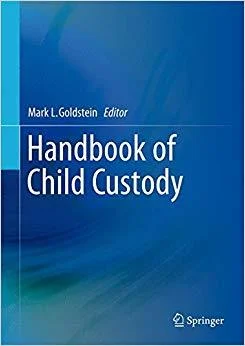
I was pleased that authors Audrey G. Masilla and Kristine M. Jacquin, in their chapter entitled “Relocation Evaluations in Child Custody Disputes” in the newly-published Handbook of Child Custody (Mark L. Goldstein, editor) relied substantially, when discussing international relocations, on my prior article on the topic. My article, entitled “The Impact of Foreign Law on Child Custody Determinations, is available here.
In the portion available of their work freely available online, the authors stated:
“Because of the complex nature of foreign relocation, and what will and will not be recognized in U.S. courts, Morley asserts that when foreign relocation is probable, it is essential for those forensic psychologists conducting relocation evaluations to be knowledgeable and take into consideration whether the country under question recognizes and enforces U.S. custody agreements. This knowledge pertaining to U.S. law for relocations to foreign countries is vital in order to maintain the safety of and reduce the potential consequences for both the child and the left-behind parent. However, regardless of whether the forensic psychologist and/or the U.S. court system is cognizant and knowledgeable to the applicability of the U.S. custody determinations in foreign locations, it is impossible to evaluate the true risk to the child (or left-behind parent) or the potential experiences that may take place until he or she is residing in the country of request.
Nevertheless, Morley suggests that various elements usually included within a foreign custody relocation agreement include a specified date of return that is nonnegotiable without written approval via the left-behind parent, posted bond (e.g., money) to ensure compliance with the U.S. custody order, and acquisition of a mirror order (e.g., mirror order from foreign country) in advance and at the expense of the parent requesting movement of the child. When dealing with mirror orders, (1) the verbiage used in the order may not transfer meaning accurately across cultures, (2) the receiving country may not uphold the order, (3) the order can be modified by the resident of that particular country, and (4) not all countries will provide a mirror order.
While international relocation evaluations maintain a multitude of intricacies and complexities necessary to navigate, Morley provides recommendations for custody evaluators that deal with such international relocation evaluations, which include being cognizant of the varying laws between foreign countries pertaining to client-specific factors, determining if the country of relocation is in collaboration of the Hague Abduction Convention, acknowledging that foreign countries may not uphold a U.S. custody order, consulting with an expert in international family law, providing safeguards for travel and visits to foreign lands, recommending a mirror order (if possible), and, if the determined relocation is that the child not relocate, providing recommendations for safeguarding the denial situation (see Morley 2013 for full list regarding international visitation and relocation).”

Country-by-Country Information About Child Abduction and Divorce
(Click to find your country)
IMPORTANT: WE REQUIRE SPECIFIC INFORMATION ABOUT YOUR SITUATION OR WE WILL NOT BE ABLE TO RESPOND.
POTENTIAL CLIENTS SHOULD NOT SEND ANY CONFIDENTIAL INFORMATION UNTIL SUCH TIME AS AN ATTORNEY-CLIENT RELATIONSHIP HAS BEEN ESTABLISHED BY A WRITTEN RETAINER AGREEMENT SIGNED BY BOTH THE ATTORNEY AND THE CLIENT. SENDING AN EMAIL DOES NOT CREATE AN ATTORNEY-CLIENT RELATIONSHIP OR CONTRACTUALLY OBLIGATE THE LAW OFFICE OF JEREMY D. MORLEY TO REPRESENT YOU, REGARDLESS OF THE CONTENT OF SUCH INQUIRY.
Potential clients should not send any confidential information until such time as an attorney-client relationship has been established by a written retainer agreement signed by both the attorney and the client. Sending an email does not create an attorney-client relationship or contractually obligate The Law Office of Jeremy D. Morley to represent you, regardless of the content of such inquiry.
Copyright © 2025 Jeremy Morley | Website Designed by MozWebMedia